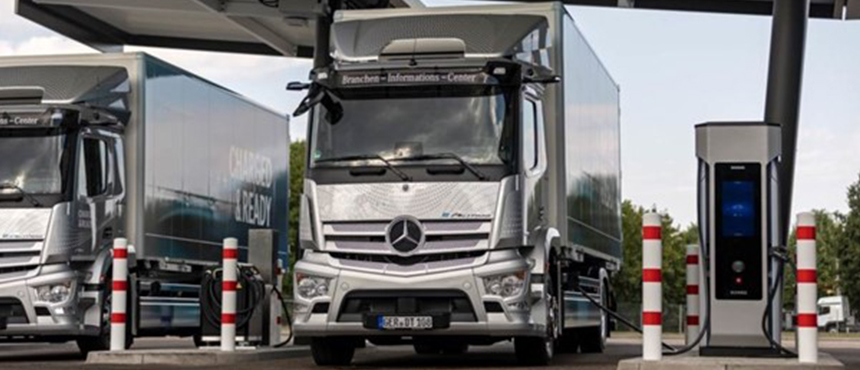Decarbonization of the Australian Heavy Vehicle Fleet through PBS
PBS has been around for over a decade, but how can it help with a modern challenge? The Australian heavy vehicle fleet plays a crucial role in the nation’s economy, transporting goods across vast distances. However, the environmental impact of these vehicles cannot be overlooked. In 2018, it was found that the Australian truck & bus fleet contributed approximately 6 per cent of Australia’s total greenhouse gas emissions.

In recent years, there has been a growing emphasis on improving environmental efficiency and decarbonizing the heavy vehicle fleet. While the industry is beginning to consider electric vehicles to be a true alternative, the majority of Australia’s road transport fleet remains heavily reliant on diesel fuel. Until the shift to zero emissions vehicles gains traction, we must look for methods to improve efficiency and reduce our emissions. One approach which is not at the forefront of discussions around environmental efficiency is the Performance-Based Standards (PBS) scheme.
The Performance-Based Standards (PBS) scheme is an innovative regulatory framework which requires vehicles to meet performance standards based on their capabilities, rather than relying on prescriptive dimensional requirements. One major benefit of PBS is that it allows for improved productivity, either through increased mass limits or more flexible trailer body designs. While this is normally viewed from the perspective of a transport operator being able to improve their profitability, this is also a path to reducing greenhouse gas emissions from heavy vehicles.
By allowing for longer and more efficient vehicle combinations, PBS combinations can carry larger payloads without compromising safety or increasing environmental impact. This leads to fewer trips, reduced fuel consumption, and lower emissions per tonne of freight transported.
To give an example of this, the Australian Trucking Association examined the difference in fuel consumption of a 63-tonne B-double and a 79.5-tonne A-double travelling fully laden from Melbourne to Sydney. While the heavier A-double consumed 8 per cent more fuel than the B‑double per kilometre travelled, it carried 25 per cent more payload. This means that it would take the A‑double four trips to carry the same total payload as B-double could in five trips. Despite the increased fuel consumption per kilometre, the overall emissions to carry the same amount of payload with an A-double would be 14 per cent less than the B-double.
PBS not only has a direct impact upon greenhouse gas emissions, but also indirect impacts through an emphasis on safety. As a result of being subject to safety-related performance requirements, PBS vehicles are involved in fewer accidents than prescriptive vehicles, leading to less congestion on the roads and a reduced need for expenditure on repairing roads, replacing damaged equipment and emergency services.

A Mercedes-Benz truck at a heavy vehicle charging park opened in Germany in 2022.
Source: Daimler
PBS has made significant strides in improving the environmental efficiency and decarbonization of the Australian heavy vehicle fleet, but efficiency gains can only go so far. Continued research and development of alternative fuels, electrification, and automation are essential for further reducing greenhouse gas emissions and achieving a sustainable heavy vehicle fleet.
However, as these cutting-edge technologies become available on the market, they may not fit within the existing prescriptive requirements of heavy vehicles in Australia. By providing a more flexible regulatory framework for these vehicles to utilise, PBS may continue to contribute to decarbonisation even as diesel vehicles are phased out.
With a focus on advanced vehicle design, safety, and freight productivity, the PBS scheme offers a means to reduce emissions and improve efficiency of the heavy vehicle fleet. With ongoing government support and industry collaboration, PBS will continue to revolutionize the heavy vehicle industry, paving the way towards a more sustainable future.
Contact Advantia if you would like to investigate PBS opportunities for your business.
Get more like this in your inbox
Subscribe to our Newsletter and never miss a post.